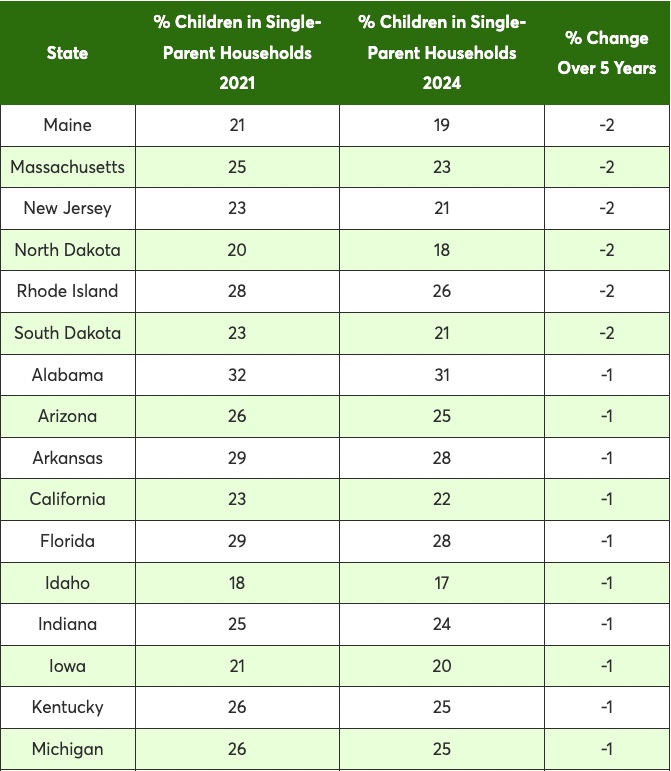Raising kids is hard enough, even when there are two of you, so spare a thought for those single parents who have to do at least double the work in raising their children. Not only do they have more to do, but single parents are, by definition, relying on one sole income. This, of course, puts huge financial pressure on the household, meaning adults in single-parent households often face greater challenges.
If there are no shared financial responsibilities, or a cushion for when unexpected bills come up - such as a car repair, or replacing a washing machine - then this can result in missed payments and high credit utilization. This, in turn, negatively impacts credit scores and makes it harder to access affordable borrowing options.
BadCredit.org carried out a study of County Health Rankings data to track trends in the number of single-parent households over a 4-year period, identifying where levels are rising or falling. The County Health Rankings data they used looked at how the trends have changed since 2021. Overall, they found that across the majority of states, there has been a modest decline in the percentage of children in single-parent households, with decreases ranging from 1% to 2%.
The percentage of children in single-parent Indiana households has dropped by 1%. However, there are disparities among counties in the state.
The top 5 counties with the greatest decrease in children in single-parent households:
Crawford: -16%
Pike: -10%
Parke: -9%
Wells: -8%
Shelby: -7%
The 5 counties with the highest growth in single-parent households among children are:
Ohio: 9%
Sullivan: 8%
Scott: 8%
Greene: 7%
Cass: 6%
In terms of counties from other parts of the country, there have been some much bigger changes. The county with the biggest rise in single-parent households — 40% — is Foard, Texas, closely followed by Culberson, also in Texas (39%), and Mora, New Mexico (38%).

“The data shows that there is a stark reminder that behind these percentages are real families dealing with real challenges. Raising kids on a single income isn't just about budgeting — it's about juggling childcare, work, and those surprise expenses that always seem to pop up at the worst times,” says Jon McDonald, senior editor at BadCredit.org.


